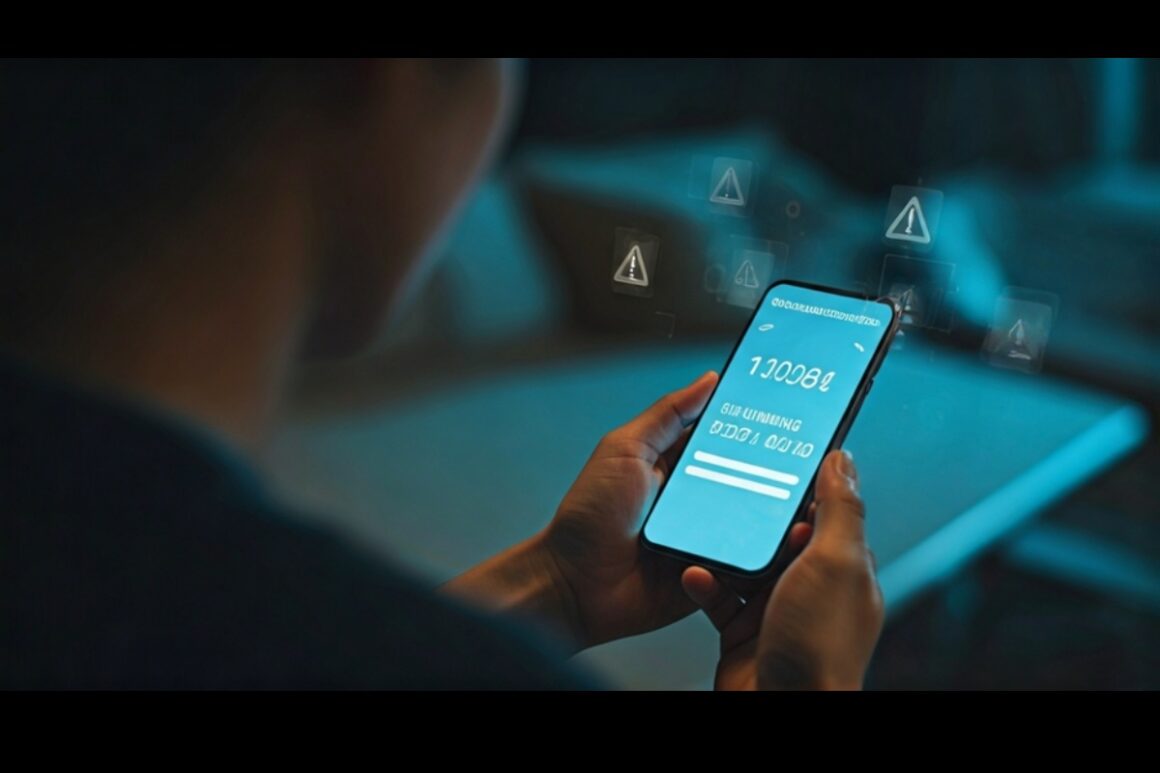Table of Contents
Key Highlights
- Calls from phone number 8656696225537 are widely reported as unwanted calls and potential scams.
- The number is frequently linked to Amazon scam attempts, including requests for personal or financial information.
- Online forums describe repeated harassment, silent calls, static voicemails, and messages urging you to press buttons or call back.
- Many users warn that these calls could compromise your sensitive data or lead to financial loss.
- Recognizing red flags and blocking/reporting these numbers are crucial protective steps.
- Community discussions emphasize the importance of not sharing any personal information with such suspicious callers.
Introduction
Receiving a mysterious call from an unfamiliar phone number can leave anyone uneasy, especially when voicemails are left or the caller seems suspicious. The phone number 8656696225537 has triggered concern for thousands of people across the United States. Reports indicate these calls are persistent, often coming at odd hours and sometimes involving voicemails filled with static or vague threats. If you’re wondering about the identity of these callers or how to handle such encounters, read on to discover what you need to know—and how you can protect yourself.
Understanding the Mysterious Call from 8656696225537
Have you found yourself repeatedly targeted by calls from 8656696225537? If so, you’re not alone. Many people have described similar experiences, noting how the callers rarely identify themselves and often leave unsettling voicemails or no message at all.
These unwanted calls have raised questions about the true nature behind this phone number. Online reports overwhelmingly suggest a connection to scams, with callers attempting various tactics to gather personal information. Should you be worried? Understanding what’s behind these calls and what others have experienced can help you decide the right steps to take.
Initial Encounter: How I Received the Call
My experience began simply enough—a random call from 8656696225537 appeared on my phone. I didn’t recognize the number and, like many people, decided not to answer. Instead, I waited to see if a voicemail would appear. The first time, there was nothing but silence on the message. It was unsettling, but I brushed it off as a simple error or a wrong number.
However, it didn’t stop there. Over the next two days, the calls continued, sometimes several times a day. Out of curiosity, I listened to a voicemail that was just static, with no identifiable message or information. That’s when my concern grew. Who was behind this, and what did they want? Was my personal or financial information at risk? These questions led me to dig deeper and seek out what others had reported about this phone number.
First Impressions and Caller Behavior
The more calls I received from 8656696225537, the more suspicious I became. It wasn’t just the frequency; the behavior of the callers raised alarms. Sometimes, the call would disconnect as soon as I picked up. Other times, the voicemail contained odd noises—static, silence, or, once, a robotic-sounding message urging me to press a number to speak to an agent.
Checking online, I found countless stories echoing my own. Some people said the caller pretended to be from Amazon, mentioning supposed unpaid bills or suspicious account activity. Others described the calls as outright harassment, including threats or bizarre messages. The one common thread? No one who answered was given clear information. If you get a static voicemail or a similar suspicious call, it’s a red flag—do not respond or provide any personal information.
Investigating the Phone Number 8656696225537
Curiosity led me to investigate 8656696225537 on various consumer protection websites. What I discovered was both alarming and validating. This phone number is listed as originating from Tennessee and is overwhelmingly flagged as a source of scam calls. Online communities have rated it as untrustworthy, noting its connection to Amazon scam call attempts.
The consistency of these reports—harassment, requests for sensitive data, and relentless call frequency—paint a clear picture. Understanding these patterns helped me see that the risk was real, and immediate action was necessary.
Searching Online: Reports and Community Experiences
Looking up 8656696225537, I found page after page of warnings and personal stories. People reported a mix of harassment calls, silent voicemails, and persistent contact attempts. Many shared how the caller’s messages varied—from threats about legal action to fake Amazon account alerts—always with the intent to prompt a call back or capture personal information.
The table below summarizes common experiences and caller behaviors reported online:
| Caller Behavior | Frequency Reported | Example Comments |
| Silent calls / hang-ups | Very Common | “Picked up and they hung up right after.” |
| Static/noise voicemails | Common | “They left a minute and a half voicemail of just static.” |
| Fake Amazon claims | Frequent | “Caller claimed to be from Amazon about an iPhone order.” |
| Threats / legal warnings | Sometimes | “Said the county was filing a claim against me.” |
| Requests to press buttons/call | Frequent | “Press 1 to talk to an agent or dispute charges.” |
People who blocked the number reported a decline in calls, while those who responded often received even more harassment.
Connections to Known Scams or Organizations
Digging into the origins of 8656696225537, I found it’s regularly tied to well-known scams, especially those impersonating Amazon tech support. Many users posted about receiving calls where the person on the line claimed to be “verifying” purchases, fixing supposed account breaches, or collecting payments for goods never bought.
In these scam attempts, the caller often asks you to press a number or call back, which can result in connecting to premium rate lines or providing sensitive financial information. Occasionally, the messages reference debt collection, claim to be law enforcement, or threaten immediate legal action—classic hallmarks of advanced phone scams. Notably, reputable companies like Amazon never request sensitive information or payment this way.
If you’re ever unsure, remember: “Legitimate organizations will never pressure you to act immediately or request personal information over the phone,” says Hari Ravichandran, CEO of Aura.
Warning Signs of Potential Phone Scams
Spotting a scam call can be challenging, but certain signs can help you stay vigilant. Calls from numbers like 8656696225537 often involve requests for personal or financial information, urgent messages about supposed account problems, or threats of legal action. Any request to press phone buttons or call unfamiliar numbers is a warning sign.
Being aware of these red flags can help you avoid falling victim to scams. If you suspect a call is fraudulent, trust your instincts and take steps to safeguard your information.
Common Tactics Used by Scam Callers
Phone scammers, including those linked to 8656696225537, use a variety of manipulative tactics to catch you off guard. Their goal is to trick you into giving up personal or financial information or to scare you into immediate action.
Here are some common techniques you may encounter:
- Pretending to be from a trusted company, like Amazon or a government agency.
- Claiming there’s a problem with your account or an unpaid bill that needs urgent attention.
- Using threats of legal action, arrest, or loss of services to create panic.
- Sending voicemails with static, silence, or vague instructions to “press 1 to talk to an agent.”
- Requesting sensitive information under the guise of verification.
Stay alert—never provide details or act without verifying the caller’s legitimacy.
Recognizing Red Flags in Suspicious Calls
Identifying the telltale signs of scams can make a big difference in protecting your sensitive information. When you receive a call from an unknown number such as 8656696225537, watch out for these red flags:
- Callers refuse to identify themselves or claim to be from well-known companies without proof.
- Messages demand immediate action, payment, or disclosure of personal information.
- Voicemails contain static, silence, or robotic instructions for next steps.
- You’re asked to press a button or call back to a different number.
If you receive a static voicemail or any of these suspicious indicators, do not respond. Instead, block the number and report it to authorities.
What To Do If You Receive a Call from 8656696225537
If you get a call from 8656696225537, your best approach is to protect your personal information and avoid engaging with the caller. Do not answer unknown numbers, and never provide sensitive details such as credit card numbers or passwords. The FTC advises reporting suspected scam calls to help track criminal activity and prevent further harassment.
Remember, taking prompt steps to block and report the number can keep your data—and peace of mind—safe from future threats.
Safe Steps for Handling the Call
Dealing with scam calls requires a calm and methodical response. If you keep receiving repeated calls from 8656696225537, don’t panic. Focus on minimizing your risk.
Follow these steps:
- Never share personal, financial, or sensitive information over the phone.
- Let unknown or suspicious numbers go to voicemail. Review any messages carefully, and never respond to requests for verification or payment.
- Avoid pressing buttons or calling back new numbers provided by the caller.
- Block the number on your device to prevent further unwanted calls.
- Report the incident to the FTC to help authorities track and combat scams.
Taking these precautions can help you steer clear of costly mistakes and keep your information secure.
How to Block and Report Scam Numbers on Your Phone
Modern smartphones make it easy to block and report scam numbers, including 8656696225537. Here’s how you can take action:
- On iPhone/iOS: Go to “Recents,” tap the info button next to the number, and select “Block this Caller.”
- On Android: Open the Phone app, tap “Call history,” select the number, and choose “Block/report spam.”
- Use your carrier’s spam-blocking features (like AT&T ActiveArmor, T-Mobile Scam Shield, or Verizon Call Filter).
Additionally, you can help warn others by reporting the call to the FTC at ftc.gov/complaint or the FCC. Community reporting increases awareness and helps authorities crack down on scam operations.
Conclusion
In conclusion, the experience of receiving a call from 8656696225537 serves as a stark reminder of the increasing prevalence of phone scams. From my initial encounter to the ensuing investigation, it is clear that recognizing warning signs and understanding the common tactics used by scammers are crucial in safeguarding your personal information. Knowledge is your best defense; by staying informed about suspicious numbers and knowing how to respond, you can protect yourself and others from potential fraud. If you’ve encountered similar situations or have questions about handling unwanted calls, don’t hesitate to reach out for help. Your safety is paramount!
Frequently Asked Questions
Can answering calls from 8656696225537 compromise my personal information?
Yes, answering or returning calls from 8656696225537 could put your personal information at risk. Scam callers often use these interactions to verify active numbers or trick you into giving away sensitive details. It’s safest to avoid answering and never share any information.
Is 8656696225537 really connected to Amazon tech support scams?
Numerous reports confirm that 8656696225537 has been linked to Amazon tech support scams. Callers impersonate Amazon representatives, referencing fake purchases or account issues, then attempt to collect personal or financial information. Always verify suspicious calls through official Amazon customer service channels.
Where should I report repeated nuisance or suspected scam calls in the United States?
You should report suspected scam or nuisance calls to the Federal Trade Commission (FTC) at ftc.gov/complaint. This helps authorities investigate and shut down scam operations. Additionally, utilize your carrier’s spam-blocking tools and consider adding your number to the National Do Not Call Registry.


